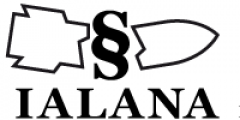Please find the videos, presentations and speeches in writing of the webinar below
ウェビナーの動画、プレゼンテーション、スピーチの文章はこちらでご覧ください。
Date / Time 14 March 2022 from 10:00 to 12:10, CET
Introduction
The debate on and arguments against nuclear weapons have been reframed with the introduction of the concepts of humanitarian and environmental consequences of nuclear weapons. The TPNW as well as recent rulings like the Human Rights Committee General Comment No 36 on the right to life enlarged the legal tools in the struggle against nuclear weapons and in giving justice to the victims of the nuclear complex.
This webinar will reflect on the legal framework – legal arguments, rights and remedies – linking existing experience with future options. Thus, the webinar aims at highlighting new paths to protect nuclear victims and the environment.
For more detailed background information on various topics of the webinar, please see a list of references.
1st Session
Looking Back: Learning from the experience of lawyers who have supported victims of the atomic bombs and nuclear testing
Moderator: Hiroko Takahashi, Professor of Department of History, Faculty of Letters, Nara University, Japan
Opening and Introductory Remarks Kazue Mori, Lawyer, JALANA Secretary General, Japan (Speech)
Struggle of Japanese Lawyers to Support A-Bomb Survivors Takeya Sasaki, Lawyer in Hiroshima, IALANA co-president, Japan (Speech)
Relief of A-Bomb Survivors in South Korea Choi, Bongtae, Lawyer in South Korea (Speech)
Bikini Lawsuit Masayoshi Naito, Lawyer, JALANA vice-president, Japan (Speech, Video Message from Ms. Setsuko Shimomoto
https://www.youtube.com/watch?v=TuDoMrYf8s4)
Concluding Remarks
Hiroko Takahashi, Professor of Department of History, Faculty of Letters, Nara University, Japan (Speech)
Q+A
Short Break
2nd Session
Looking Ahead: The future of victim assistance and environmental remediation – making use of the TPNW and existing international, esp. human rights law
Moderator: Toshinori Yamada, Lecturer of International Law, Meiji University, Japan (Introduction)
Implementation of Article 6 and 7 of the TPNW ahead of the first Meeting of States Parties Manfred Mohr, Professor of Public International Law, Academy of Sciences, Board member of IALANA, Germany (Presentation)
Human Rights Approach for Nuclear Disarmament Daniel Rietiker, Adjunct Professor at Lausanne University and Suffolk University Law School, IALANA co-president, France (Presentation)
Framework of Environmental Remediation Emilie Gaillard, lecturer in private law, director of the master degree GENFUT (Future Generations and Legal Transitions) at SciencesPo Rennes, general coordinator of the Normandy Chair for Peace, board member of IALANA, France
Q+A
Final Remarks Toshinori Yamada (Speech)
Closing
